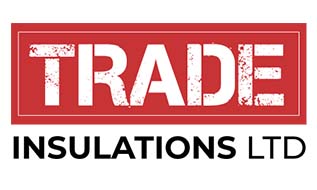The meaning of climate change is long-term shifts in temperatures and weather patterns that influence the environment. The shifts can be natural however since the 1800s, human activities have been the main cause of climate change, mainly due to the burning of fossil fuels such as coal, oil and gas.
Burning these materials releases what are called greenhouse gases into Earth’s atmosphere. There, these gases trap heat from the sun’s rays inside the atmosphere causing Earth’s average temperature to rise. This rise in the planet’s temperature is called global warming. The warming of the planet impacts local and regional climates. Throughout Earth’s history, the climate has continually changed. When occurring naturally, this is a slow process that has taken place over hundreds and thousands of years. The human-influenced climate change that is happening now is occurring at a much faster rate.”
Quote From Nat Geo

The effects of climate change include changing and less predictable weather conditions, it has been discussed as being the cause for the more recent and aggressive floods and hurricanes. The human influence in climate change has largely contributed to global warming.
This has effects on different parts of the globe such as in polar regions, the warming global temperatures connected with climate change have caused ice sheets and glaciers to melt at a faster rate from season to season. This contributes to sea levels rising in various regions of the planet. Together with escalating ocean waters due to rising temperatures, the resulting rise in sea level has begun to have an effect on wildlife that habitats in the polar region and damage coastlines because of heightened flooding and erosion.
The UK has a legally binding target in place to reduce its carbon emissions to net-zero by 2050. To meet this target, the carbon emissions caused because of heating in homes must be significantly reduced. The insulation rates have fallen since 2012 even though the government has run schemes to encourage people to take insulation measures in their properties. New measures are being discussed to increase the levels of insulation being installed.
The government has a target to upgrade the target of 1 million homes though Eco and domestic energy efficient schemes. The target is aimed to be achieved over a 5-year period.
What is the current state of insulation of the nation’s homes?
There has been an increase in insulation being installed in the UK. By the of 2019, 9% of people with solid walls in their homes had solid wall insulation installed (764,000 properties), 70% of people with a cavity wall in their homes had cavity wall insulation installed (14.1 million properties), and 66% of people with a loft in their homes had loft insulation installed. (16.4 million properties).
In 2017, carbon emissions from homes were 9% below 1990 levels. When adjusting for annual temperature variation, emissions from homes rose by 1% in 2017.
How does the government propose we go forward?
- Costs should be provided to low-income households to take energy-efficient measures.
- In the rent sector, government funding and social landlord investment should pay for energy efficiency.
- Better households and landlords should, if possible, make and pay for their own energy-efficient home improvements.
Why is insulating homes important?
Insulation helps control the heating in the property and decreases levels of heat being lost through the structure of the building such as roofs, walls, and floors. This will mean less energy will be needed to heat up a building. By using less energy for heating it will make the property more energy-efficient and reduce its carbon emissions.
What is insulation?
Insulation is material designed to be installed into buildings to provide thermal efficiency. It also helps increase the safety of the building, provide acoustic qualities, and helps with moisture resistance and fire prevention. It is available in a range of products for a range of different types of applications.
How will insulating my home affect me?
- It will mean you save money on your energy bills
- It will provide your home with more temperature control and a comfortable environment by keeping the heat in and the cold out.
- It can be costly to insulate your home depending on your circumstances and the type of insulation your home requires.
- Some insulation installations can mean interior works being done to your home which can be disruptive however other methods can be done from the outside meaning less disruption in your home.
- By insulating your home, you are supporting the movement to create a more energy-efficient environment and contributing to the prevention of climate change.
What are other cost-effective ways of doing your bit to help climate change?
- Provide insulation over any hot pipes throughout your home including hot water cylinders.
- Ensure you have a heating system that provides a room thermostat and thermostatic radiator valves.
- Seal any gaps between floors and skirting boards with sealant.
- Fit foam strips of plastic seals around doors and windows.

